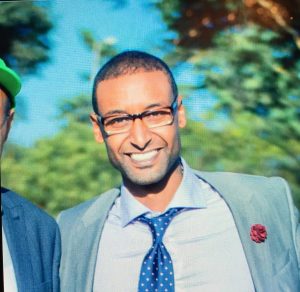Social sectors need a strong foundation to make the most proactive, efficient social impact possible. The foundation and structure of a social sector are most effective long-term when daily actions align with the goals of the ecosystem, its evolution, and the organization’s place within it.
Capacity building and long-term strategies can aid a social sector in reaching these proactive goals on a micro-level and create a sustainable growth path for a country on a macro-level.
Hiruy Amanuel is an IT enthusiast and a major investor in Africa’s technological advancement. Mr. Amanuel is passionate about helping Africans achieve their dreams in the rapidly growing technology sector. He is committed to empowering individuals to pursue their dreams, and in doing so, he also opens up the global marketplace to the vast array of untapped African talent.
Here, he describes capacity building and organizations for social change:
What is Capacity Building?
Capacity building has been a critical aspect of the social sector since the 1970s. Unfortunately, the rapid development of the sphere has left the capacity building behind. However, all involved with the ecosystem could greatly benefit from a renewed focus on capacity building to improve effectiveness.
Benefits from renewing the process of capacity building in today’s social sector will help organizations further understand how to integrate themselves within the greater community. This modern-day view on capacity building has come to fruition through technology advances, experience, and new techniques. These new techniques include increased development of innovative diagnostic tools, appealing teams, impartiality, active diversity, inclusion, and assisting in the capacity building of partnered organizations.
Capacity Building for Social Change
Capacity building has many long-term benefits. The process allows for sustainable growth, but to achieve that, business owners have to be committed and actively participate.
In Africa, capacity building would allow for the continent to develop further and sever external reliance. If the success of the continent is put into the hands of African organization owners, that process instills the people with empowerment, unity, self-reliance, integration, as well as solidarity.
The Africa Capacity Building Foundation (ACBF) supports Africa’s economic transformation through capacity building. The ACBF formed as a forward solution to the great need for capacity building in African development as well as the lack of funding and investments for indigenous human capital and institutions. Despite multiple economic challenges, the ACBF efforts to achieve sustainable growth within Africa continue forward as they invest in creating capacity building in institutions and businesses all over Africa. The ACBF provides its ongoing support through knowledge services, capacity, development and advisory services, innovation, fund management and investing in capacity, and resource mobilization.
In today’s world, more and more businesses are choosing to push aside capacity building primarily due to the lack of constructive dialogue between organizations. The term capacity building is outdated, but modern day effective capacity building techniques can be integrated into today’s organizations. The first step to bringing the benefits of capacity building back into the social sector is the conversation. The constructive dialogue will bring excitement to capacity building’s new techniques and bring the term itself back to life…
Content retrieved from: https://www.thetrentonline.com/gebeya-co-founder-hiruy-amanuel-on-capacity-building-organizations-for-social-change/.



No responses yet